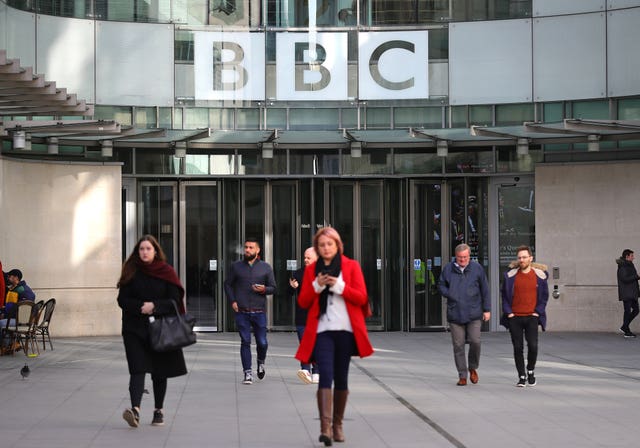The end of the free TV licence for all over-75s has been delayed because of the coronavirus outbreak.
The universal benefit was due to end on June 1, when it will be restricted to those who claim pension credit, but that has now been pushed back until August 1.
A joint statement from the BBC and Department for Digital, Culture, Media and Sport said: “The BBC and the Government have been discussing the national coronavirus situation.
“Changes to the TV licence for people aged over 75 had been due to come into effect on 1 June. But during this time we do not want anyone to be worried about any potential change.
Joint statement from the BBC and Department for Digital, Culture, Media & Sport on TV Licences for over 75s: https://t.co/udF0T37MWA pic.twitter.com/fYAv9o5Pa2
— BBC Press Office (@bbcpress) March 16, 2020
“The BBC’s priority over the coming period will be to do everything we can to serve the nation at this uniquely challenging time.
“As the national broadcaster, the BBC has a vital role to play in supplying information to the public in the weeks and months ahead.
“Recognising the exceptional circumstances, the BBC board has therefore decided to change the start date of the new policy.
“Our current plan is to now bring it into place on 1 August. We will of course keep the issue under review as the situation continues to evolve.”

BBC chairman Sir David Clementi said: “We are in exceptional circumstances. Now is not the right time. We are fully focused on delivering our services to the public at this difficult time.”
The Government has previously said it is “disappointed” with the BBC’s decision to restrict the over-75 licence fee concession to those in receipt of pension credit.
It has recently mooted the possible end of the licence fee, with a threat to turn the BBC into a subscription service.
Culture Secretary Oliver Dowden said: “I am pleased the BBC has worked with us and agreed to delay their licence fee changes for over-75s from coming in and will keep this under review.
“It will be welcome news to millions of older people who now don’t need to worry about their TV licence during this challenging period.
“It is right that the BBC have recognised the exceptional circumstances posed by the coronavirus outbreak and the need for the whole country to pull together in the national effort.”
In 2015, the Government and the BBC reached a settlement which meant that the broadcaster had to find savings of £800 million by 2021/22.
It also saw the broadcaster commit to taking on responsibility for the funding of free licences for the over-75s.
MPs on the Culture, Media and Sport Committee have said the next round of negotiations between the Government and the BBC should agree a funding formula that maintains free TV licences for all over-75s, specifically recommending that the Government set out proposals for how it could support this measure in future, alongside the commitment that had been made by the BBC.
Caroline Abrahams, charity director at Age UK, said: “We welcome the BBC’s decision to allow free TV licences for over-75s to continue during this health emergency as a victory for common sense.
“Unfortunately, many over-75s will have already received a letter suggesting they get their Pension Credit letters photocopied at the local library or corner shop. This runs counter to the public health message the Government seems likely to be giving older people very soon about staying at home to reduce their risk of infection, so it’s important older people are informed that there’s no need for them to take this action for now.
“While today’s decision is warmly welcome, we do question whether a delay of just eight weeks will be anything like long enough. We will be monitoring the situation closely and continuing to liaise with Government and the BBC over this period.
“The aim must be to ensure that no older person is exposed to the risk of infection as a result of the introduction of a new TV Licence scheme. If the experts are right and the virus will continue to be a threat for many months to come, a pause until August 1 will be a lot shorter than needed.”
In an email to staff, Fran Unsworth, the BBC’s director of news and current affairs, said the corporation would be looking at plans to limit the number of staff in its buildings during the outbreak “so as to minimise the risk to those who need to be in BBC premises to do their jobs”.
She said the BBC would also be looking at plans to “streamline” some of its output in the eventuality of operating with fewer people.
